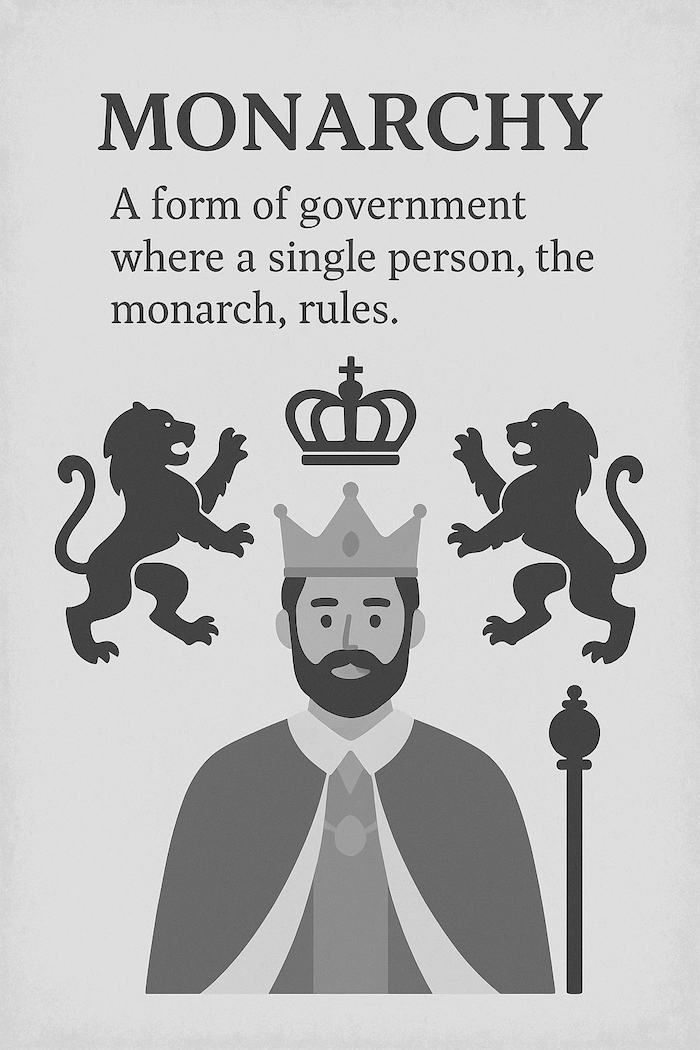Monarchy
Monarchy is a form of government
A monarchy is a system of government in which a single person — the monarch — is the head of state, usually for life and often by hereditary succession.

Etymology
From Greek monarkhía (μοναρχία): monos meaning "single" and arkhein meaning "to rule" — literally, "rule by one person." The term entered Latin as monarchia and later Middle English by the 14th century.
Historical development
Ancient monarchies
- Egypt: Pharaohs often regarded as divine or semi-divine rulers.
- Mesopotamia: Kings claimed authority granted by the gods.
- China: Emperors ruled under the "Mandate of Heaven" concept.
Classical & Medieval
Classical civilizations experimented with republics and city-state governance. In medieval Europe, monarchs ruled within the feudal system, granting land to nobles in exchange for military and political support.
Early modern period
The idea of divine right helped justify centralized, absolute authority (e.g., Louis XIV). But the 17th–18th centuries saw growing challenges from constitutionalism and revolutionary movements (England, America, France).
Modern era
Today most surviving monarchies are constitutional — the monarch is a symbolic head of state while elected institutions hold political power. A few remain absolute.
Types of monarchy
- Absolute monarchy: Monarch has nearly unrestricted power (e.g., Saudi Arabia).
- Constitutional monarchy: Monarch's role is largely ceremonial (e.g., United Kingdom, Japan).
- Elective monarchy: Monarch is selected rather than strictly hereditary (historical: Holy Roman Empire; modern example: Malaysia's rotational monarchy).
Advantages & disadvantages
Advantages
- Continuity and stability of leadership
- Symbolic national unity
- Long-term perspective in ceremonial roles
Disadvantages
- Lack of democratic selection in absolute systems
- Potential for abuse of power
- Leadership by inheritance rather than merit
Notable historical monarchies & figures
| Region | Examples | Notable figures |
|---|---|---|
| Egypt | Ancient Pharaohs | Ramses II, Cleopatra VII |
| China | Imperial Dynasties | Qin Shi Huang, Kangxi |
| Europe | British, French, Russian | Henry VIII, Louis XIV, Catherine the Great |
| Ottoman | Ottoman Empire | Suleiman the Magnificent |
| Japan | Imperial Japan | Emperor Meiji, Emperor Hirohito |
In one sentence
"A monarchy is a system of government where a single ruler — often hereditary — serves as head of state; in modern constitutional monarchies that role is largely ceremonial."